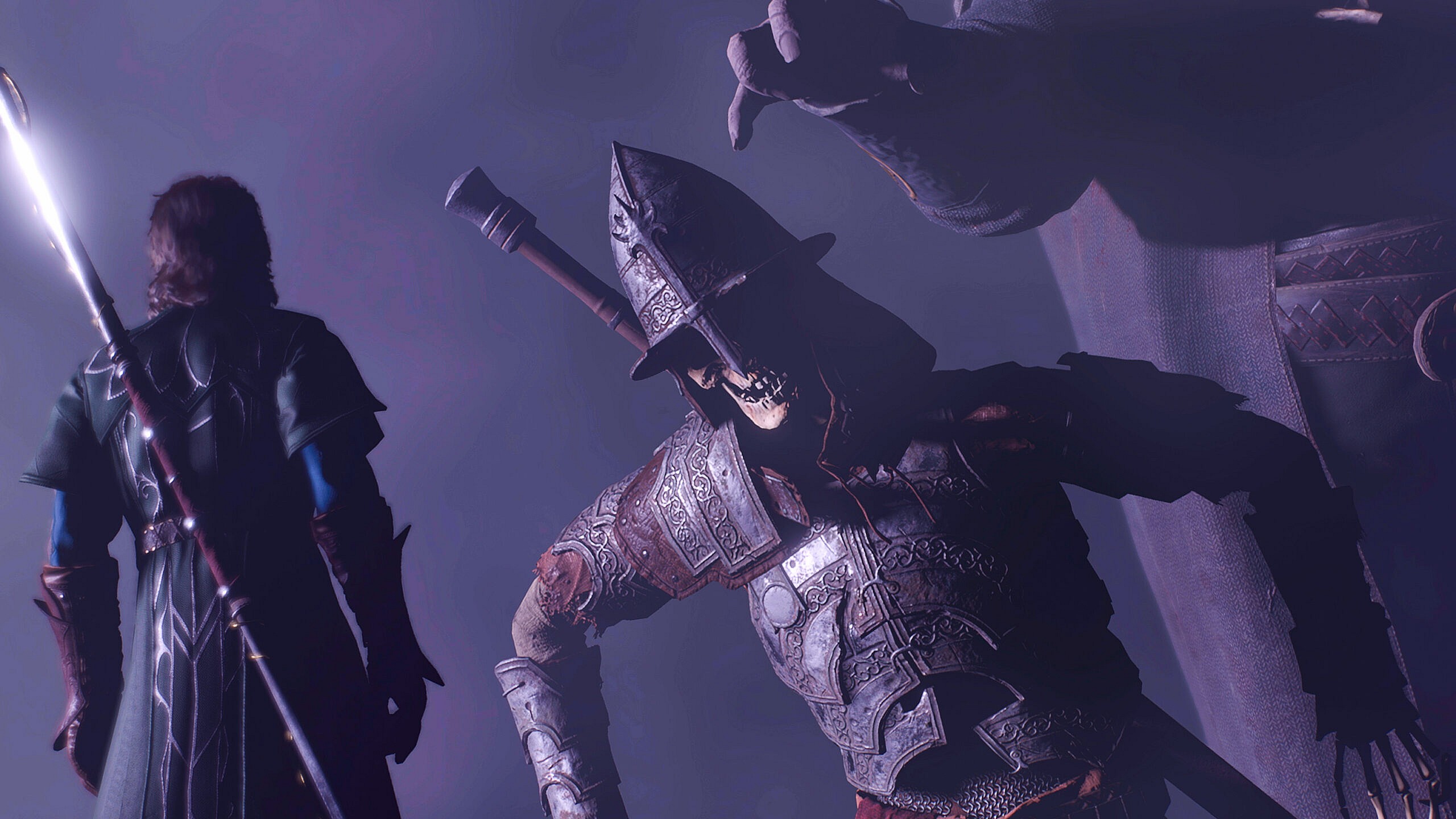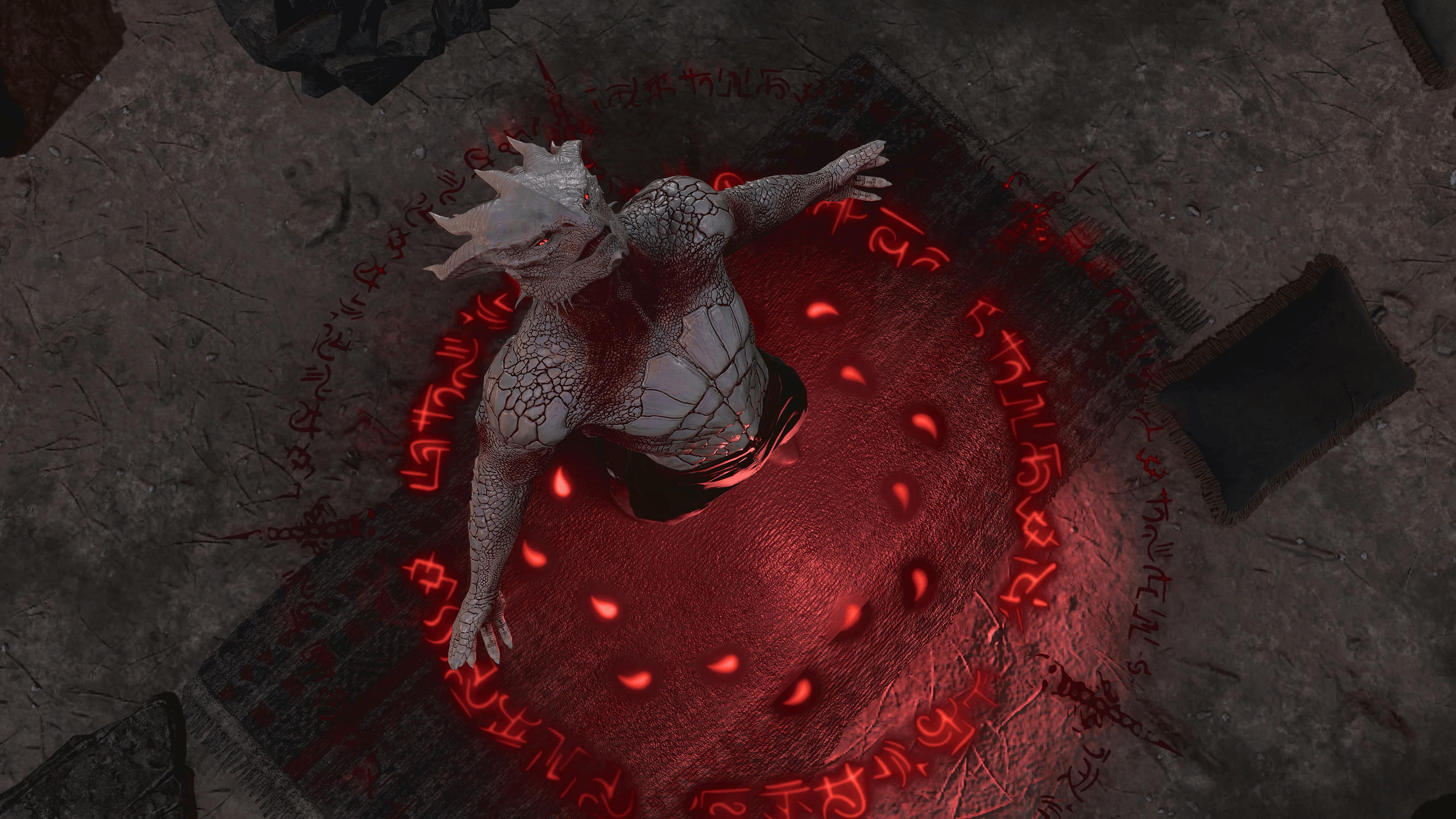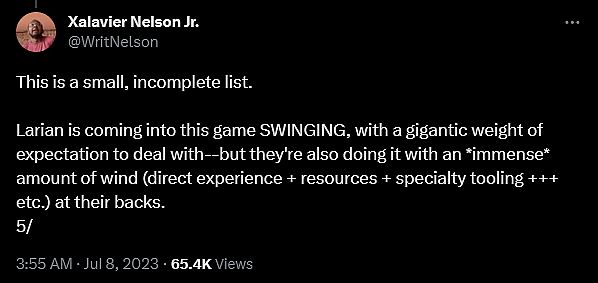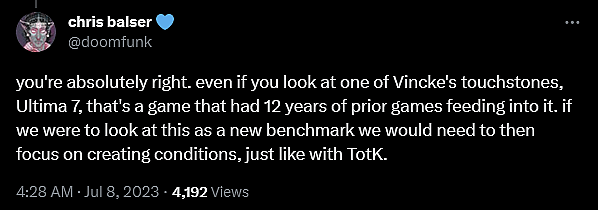Flashback: Western Devs Panicked Over High Quality Of ‘Baldur’s Gate 3’ Ahead Of Release, Wanted Players To View Game As An “Anomaly” Rather Than The New Standard

In light of the game’s runaway success, it seems appropriate to note that before the game’s full release, the sheer quality in Baldur’s Gate 3’s promotional material was enough to spark worry amongst Western developers over the possibility that it could be considered the medium’s new standard.

Based on the 5e edition of Dungeons & Dragons and helmed by Divinity developers Larian Studios, Baldur’s Gate 3 follows the tale of the player’s own customizable avatar, a fledgling adventurer who found themselves captured and subsequently infected by the monstrous Illithid amidst their recently-launched invasion of the Faerûn continent.
Eventually finding themselves free of their imprisonment, the player’s character sets out to not only remove the parasites the mind flayers left within his body, but also do what they can to shut down their plans of conquest.

Boasting such features as a completely customizable party, single-player and multiplayer options, and an overall polish that has been missing from many Western games in recent years, it’s easy to see why Baldur’s Gate 3 was considered by many to be one of their most anticipated titles of the years
However, this excitement was not shared by Larian Studios’ peers, as in the weeks leading up to the release of Baldur’s Gate 3, a number of Western video game devs – clearly aware that the game had the substance to support its surrounding hype – responded to the studio’s accomplishment with panic.

RELATED: Wizards Of The Coast Bans Artists From Using “AI Art Generation” To Create ‘Dungeons & Dragons’ Art
This discontent was first brought to widespread attention by El Paso, Elsewhere and Space Warlord Organ Trading Simulator developer Xalavier Nelson Jr., who on July 7th tweeted, “Like a lot of people, I’m deeply excited about what the lovely folks at Larian accomplished with Baldur’s Gate 3, but I want to gently, pre-emptively push back against players taking that excitement and using it to apply criticism or a ‘raised standard’ to RPGs going forward.”

Asserting that “You can’t separate a game from the process used to build it,” Nelson Jr. then sought to temper players’ future expectations by taking a “look at what Larian is taking into the development and final version of this game”.

“1)Dev cycle stretching back to ~2017,” he then began to list. “2) Two massive games–and their Definitive editions–worth of tech and institutional knowledge to draw from 3) Super successful Early Access period lasting 3 years, providing crucial community feedback, bug hunting, and cash flow”.

“4) Over 400 developers in 7 different offices around the world [not including outsourcing partners],” he added. “5) The license, brand, and world of one of the largest entertainment IPs in the world (D&D), at the apex of its popularity with the rise of the actual play movement, and a movie”.

Admitting that this list was “small [and] incomplete”, Nelson Jr. then explained, “Larian is coming into this game SWINGING, with a gigantic weight of expectation to deal with–but they’re also doing it with an *immense* amount of wind (direct experience + resources + specialty tooling +++ etc.) at their backs.”

“As a TL;DR,” summarized Nelson Jr., “In an era of megagames, Baldur’s Gate 3 is one of the largest attempted, built by a specialized group of people using mature tech specially built to make *this specific game*, reinforced by invaluable mass player feedback AND market validation ahead of its launch”.

“This is not a new baseline for RPGs–this is an anomaly,” he argued. “Trying to do the same thing in the same way, especially without the same advantages, could kill an entire GROUP of studios.”
“If they go as big or bigger with their next title, Larian themselves could die!” Nelson Jr. proceeded to claim. “That’s the risk and reward of the megagame. We are an industry dangling elephants over cliffs, pointing at the ones that don’t collapse under their own weight as indictments to the ones that do.”

“So please, celebrate the achievement represented by Baldur’s Gate 3,” the dev ultimately concluded his lengthy thread. “It looks like a massive amount of effort is about to pay off in a big way, for one of the brightest voices in the medium, but if you shout that “EVERY RPG SHOULD BE LIKE THIS GOING FORWARD, YOU HAVE NO EXCUSE–” You’ve not just missed the point, you’ve created the expectations and conditions to ensure your favorite creators may never be able to give you the thing you love ever again.”

Following the conclusion of his thread, Nelson Jr.’s cautionary would receive an outpouring of support from various Western devs.
“You’re absolutely right,” said Diablo IV Senior Designer ChrisBalser. “Even if you look at one of Vincke’s touchstones, Ultima 7, that’s a game that had 12 years of prior games feeding into it. if we were to look at this as a new benchmark we would need to then focus on creating conditions, just like with TotK.”

“But people too often only look at the fruits of labour and not the labour itself. same as it ever was, I guess,” he added. “Same deal with people wondering why there are so few artists painting like renaissance masters.”

“I would not be surprised if this was more dev effort than the next 2 or 3 games in the genre combined,” opined Xbox Senior Programmer James Berg. “It’s Rockstar-level nonsense for scope. Only a few studio groups could even try this. I cannot wait to play, but this kind of effort likely won’t be replicated this decade.”

“Great thread,” praised Fallout: New Vegas director Josh Sawyer. “The conditions under which BG3 was made are atypical. This is in no way a slight against the game or the people working on it, who are clearly passionate and talented. Having the foundation set and the funding to build things on your own terms is invaluable.”

It should be noted that, despite these devs’ disingenuous and frankly insulting attempts to frame the discourse as such, players are not looking at Baldur’s Gate 3 and walking away with a desire for every game to be a large-scale, blockbuster epic.
Rather, players are hoping that the game ushers in a new standard of quality control medium-wide, particularly amongst the bigger studios such as Bethesda and Ubisoft, whose titles in recent years – despite having massively inflated – have steadily trended towards being more buggy, broken, and borderline unplayable than one would ever expect from retail releases.

Essentially, not all video games need to be genre-defining in their production, but for goodness’ sake, at least release them in a working state.
